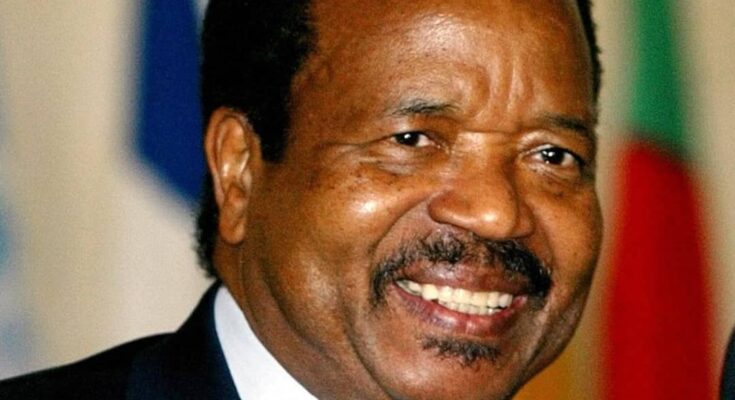Cameroonian authorities have prohibited media discussions regarding the health of President Paul Biya amid rumors of his death.
Interior Minister Paul Atanga Nji addressed regional governors, stating that such speculation “disturbs the tranquility of Cameroonians.”
He declared, “Any media debate about the president’s condition is strictly forbidden,” warning that violators would face legal consequences.
At 91 years old and in power for over 40 years, President Biya has not been publicly seen since September 8, when he attended a China-Africa forum in Beijing.
Officials have sought to quell speculation about his health, asserting that he is in good condition and currently on a private visit to Geneva, Switzerland.
Nji emphasized that the president’s health is a matter of national security, urging governors to monitor compliance among private media and social media platforms.
This ban has been met with criticism from journalists, who view it as an infringement on press freedom.
One journalist, speaking anonymously to the BBC, expressed concerns that such restrictions would hinder their reporting, stating,
“It’s going to really affect the way we report because we certainly don’t want to encounter trouble with the government.”
The media clampdown has also raised alarms about the safety of journalists in a country where media professionals often face threats from officials and insurgent groups.
Past incidents have seen Anglophone separatists kidnapping journalists, while government actions have included arrests and detentions of media members.
Despite the risks, one journalist vowed to continue reporting, acknowledging the potential dangers:
“There’s no way my report will not address the president’s whereabouts or health situation. I’ll continue to do my job.”
The Committee to Protect Journalists (CPJ), a global press freedom organization, issued a statement urging the Cameroonian government to cease its threats against journalists covering President Biya’s health.
Angela Quintal, head of CPJ’s Africa Programme, stated, “The health of the president, who has been in power for 41 years and may seek re-election next year, is a matter of public interest.
Attempts to censor reporting on his health only fuel speculation.”
Quintal suggested that the government could alleviate concerns by arranging a public appearance by the president.
As uncertainty regarding Biya’s wellbeing persists, many Cameroonians are eagerly awaiting his promised return to the country in the coming days.
Interior CS Kindiki Designates 12 Areas In Tana River As Disturbed And High-Risk Zones
